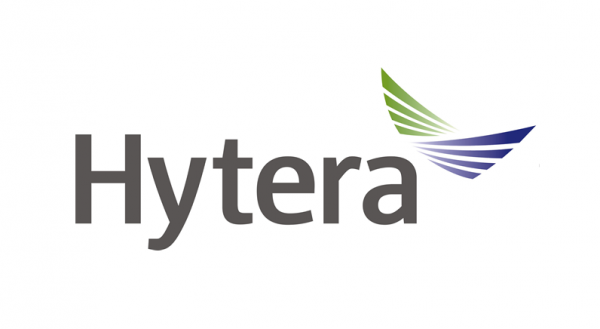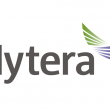Hytera, Motorola Solutions await DMR injunction ruling after submitting final briefs
Attorneys for Hytera and Motorola Solutions this week submitted final written arguments regarding injunctive relief that could block Hytera from selling many of its DMR products worldwide, apparently clearing a path for a federal judge to rule on the matter after several months of consideration.
Motorola Solutions has asked U.S. District Court Judge Charles Norgle to grant a temporary restraining order (TRO) or a permanent injunction against China-based Hytera selling DMR products that utilize trade secrets or copyrighted software stolen by former Motorola employees who left to work for Hytera in 2008. In March, Norgle affirmed a unanimous jury verdict ordering Hytera to pay Motorola Solutions $764.6 million in damages in the case.
Although Motorola Solutions’ requests for injunctive relief were made months ago, consideration of the matter was halted throughout much of the summer when Hytera’s U.S. divisions filed for Chapter 11 bankruptcy in May. But less than two months ago, the bankruptcy court lifted the stay on Norgle’s potential injunctive ruling, which could impact how the Hytera U.S. divisions are sold.
In this week’s legal filing, Hytera attorneys said there are numerous reasons why Norgle should deny Motorola Solutions’ requests for a TRO or a permanent worldwide injunction, but the brief primarily focused on the negative impact that eliminating Hytera from the DMR market could have on the public interest. In particular, Hytera cited the use of its DMR system to support “essential” communications for hospitals, utilities, airports, schools and first responders
“In many parts of the world, the public-safety entities have used Hytera systems for over a decade,” according to the Hytera brief. “Hytera has substantial knowledge of the unique challenges and needs of its users. Motorola does not dispute that its sweeping injunction will force these third parties to find replacement DMR products—a costly and lengthy process.
“Even in the best of times, Motorola’s sweeping injunction would create enormous disruptions for these public-safety entities in carrying out their missions. But during this global pandemic, when face-to-face interactions threatens lives, this injunction would be profoundly counterproductive. The public interest resoundingly disfavors Motorola’s injunction.”
Hytera’s brief also states that Motorola Solutions previously indicated interest in securing a licensing deal from Hytera for the use of the contested DMR technology.
“It is clear that Motorola presses forward with its injunction motion, not to protect against any irreparable harm, but to maximize its leverage in the ongoing mediation,” according to Hytera. “Before the trial, Motorola expressed a willingness to license the technology to Hytera. Motorola’s willingness to license the technology shows that an ongoing royalty can adequately compensate Motorola.
“While the parties have not been able to reach an agreeable royalty rate, Motorola is not without relief in the absence of an injunction. The Court can follow the practice suggested by the Federal Circuit—that is, direct the parties following the verdict to negotiate a license regarding future uses of the technology.
“If the parties fail to come to an agreement, the Court could step in, decide whether a royalty is appropriate, and determine what a reasonable royalty would be.”
Not surprisingly, Motorola Solutions’ attorneys disagreed with Hytera’s contentions. From a public-interest standpoint, the Motorola Solutions brief notes that “the public has no interest in ‘rewarding theft and encouraging unethical business behavior,’ such as the actions Hytera took to build its DMR portfolio.
In addition, Motorola Solutions believes that a royalty arrangement would not compensate the company adequately for the stolen trade secrets and software leveraged by Hytera in many of its most popular DMR products.
“Contrary to Hytera’s arguments, a future royalty is likewise not adequate to compensate Motorola for its lost sales and price erosion,” according to Motorola Solutions’ filing. “Hytera’s continued sales of the adjudicated DMR products is causing Motorola to lose market share that it may never recover, as shown by the fact that Motorola’s market share has steadily declined due to Hytera in the years leading up to this lawsuit, while Hytera now ‘sells the second most DMR radios globally’ and ‘has the second most dealers globally.’
“This remains true even after the jury’s verdict and amidst the COVID-19 pandemic. This ongoing loss of market share is unquestionably irreparable, because it will take Motorola years to gain back the share it has lost, if it ever can.”
Even after the federal-court ruling in March, Hytera has continued to offer the contested DMR products prices that are “8-15% lower” than Motorola Solutions DMR prices, according to the Motorola Solutions filing.
“Since the trial concluded, Motorola has offered price exceptions … around the world in order to compete with Hytera’s products that use Motorola’s stolen trade secrets and source code,” the Motorola Solutions brief states. “These facts—which are not only undisputed, but largely admitted by Hytera—establish irreparable harm. This worldwide price erosion cannot be remedied by a money judgment; only an injunction can stop this harm.”
Hytera previously has argued that Motorola Solutions should not be granted injunctive relief on top of the $764.6 million jury award in the case. But Motorola Solutions states in its filing that “the fact remains that Hytera still has not paid a cent of the judgment it owes” and that Motorola Solutions does not expect to benefit much from the bankruptcy sale of the two Hytera U.S. divisions.
“Motorola will receive only a pro-rata share, divided amongst all non-secured creditors, of the proposed $10 million asset sale price, minus professional fees of those facilitating the sale,” according to the Motorola Solutions brief. “This pales in relation to the $764.6 million in damages awarded to Motorola by the jury, and the additional compensation requested by Motorola in its post-trial briefing for supplemental damages and interest on the monetary award, attorneys’ fees and costs. Because Hytera is attempting to evade paying Motorola the full amount of the jury’s verdict for past damages, monetary damages are inadequate for this reason also.”















